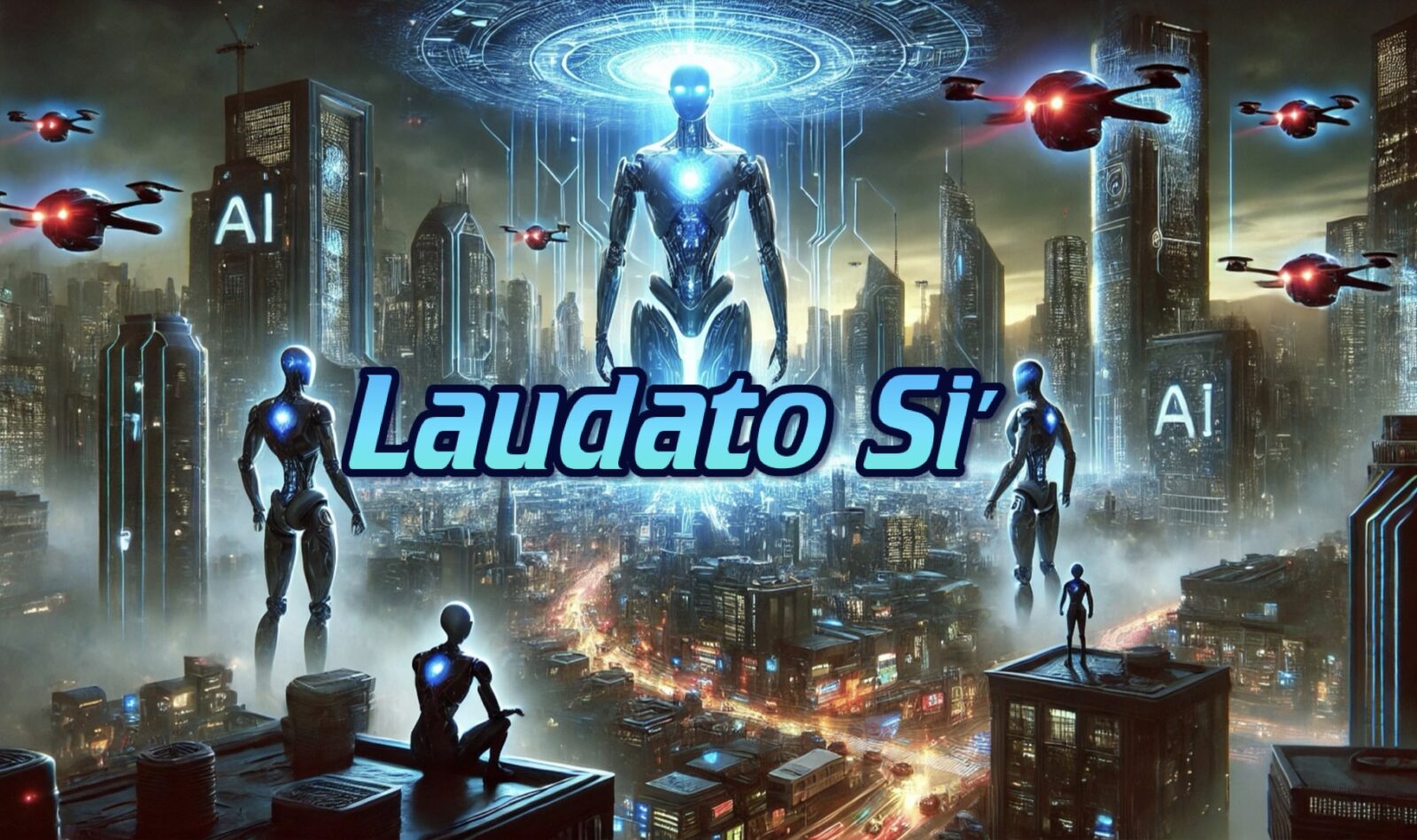
With 3.3 million followers, Aleteia is “one of the world’s leading Catholic online news sites” and is published in five different languages. [1] In an article titled “Keeping the Sabbath in the Age of Artificial Intelligence,” published on February 8, 2025, Aleteia asserted that Pope Francis’ Laudato Si’ exhortation about the “Sabbath” will help in reclaiming our humanity and combating the threats posed by AI.
Aleteia published the following about AI and the Sabbath:
• “While AI can free up more of our time, it also tempts us to fill that time with more work. Sabbath rest offers a lens through which to examine this tension.” [2]
• “The Sabbath is not just a break from labor; it’s a sacred pause that acknowledges our limitations and reorients us toward what truly matters: relationships, contemplation, and gratitude.” [2]
• “AI, by contrast, operates without limits. It doesn’t tire, doesn’t need breaks, and can process data endlessly … But unlike AI, we are not limitless. We are bodies—fragile, finite, and gloriously dependent on rhythms of rest and renewal.” [2]
• “In this context, the Sabbath becomes not just a religious observance but, we could say, even an act of resistance—a bold declaration that our value is not defined by productivity. Pope Francis, in Laudato Si’, speaks of the need to recover time to contemplate, to recognize, and to give thanks.” [2]
• “Perhaps it’s for prayer. For play. For rest that nourishes both body and soul.” [2]
• “In the end, keeping the Sabbath in the age of AI isn’t just about setting boundaries with technology. It’s about reclaiming our humanity—one heartbeat, one breath, one sacred pause at a time.” [2]
There you have it—the way to avoid the threat that AI poses to humanity is to embrace the Sabbath rest found in Laudato Si’. In recent years, religious leaders of various denominations, including Roman Catholics, have increasingly expressed the importance of setting aside a “Sabbath” as a day for both physical rest and spiritual renewal. Citing the increasing pressures of modern life, they argue that society has lost a crucial rhythm of rest that not only benefits individuals but also strengthens families and communities. Pope Francis, along with other Christian leaders, has emphasized the need to reclaim the “Sabbath” to heal our relationships, and Sunday is the day they aim to secure to prioritize their efforts.
In Laudato Si’, when Pope Francis speaks of a day of rest, he clearly refers to Sunday:
“On Sunday, our participation in the Eucharist has special importance. Sunday, like the Jewish Sabbath, is meant to be a day which heals our relationships with God, with ourselves, with others and with the world. Sunday is the day of the Resurrection, the “first day” of the new creation, whose first fruits are the Lord’s risen humanity, the pledge of the final transfiguration of all created reality.” (Laudato Si’ #237).
Rome has clearly emphasized the importance of Sunday in developing a closer relationship with God and community, and Protestant and Orthodox leaders have echoed similar sentiments. Together they urge governments and companies to respect the so-called sanctity of Sunday. This push aligns with what God’s prophetic word predicts will happen when churches come together to make Sunday the universal day of rest during the mark of the beast crisis.
“The Word of God teaches that these scenes are to be repeated as papists and Protestants shall unite for the exaltation of the Sunday” (Great Controversy, p. 578).
As momentum to protect Sunday builds, discussions about the observance of this day will become more pronounced in public discourse. This will raise questions about how a Sunday rest initiative might shape legislation, labor policies, and social standards in the coming years. Protestants and Catholics will both be involved in this effort to secure Sunday, and it all starts when the churches find common ground. No religious leader has done more to promote the unification of the churches, especially the merger of church and state, than Pope Francis:
“When the leading churches (including Catholicism) of the United States, uniting upon such points of doctrine as are held by them in common, shall influence the State to enforce their decrees and to sustain their institutions, then Protestant America will have formed an image of the Roman hierarchy, and the infliction of civil penalties upon dissenters will inevitably result.” (Great Controversy, p. 445).
Sources
[1] https://aleteia.org/about-us
[2] https://aleteia.org/2025/02/08/keeping-the-sabbath-in-the-age-of-artificial-intelligence
Leave a Reply